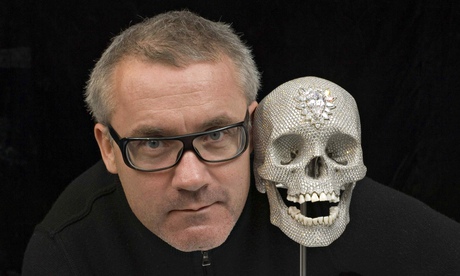
In 1989, two years after graduating from Goldsmiths, Damien Hirst was hit by a train and killed. So runs the counterfactual premise of this satirical but not unsympathetic debut about Blair-era art. Hirst's passing leaves the way clear for fellow alumnus Ian Randall Timkins – known simply as Randall – to cement himself as Cool Britannia's foremost Young British Artist, known best for outsize prints of his own shit-smeared bog roll.
The story of his rise to Bono-like celebrity before his untimely death in the 2000s is told by starry-eyed Randall intimate and former City trader Vincent Cartwright. Excerpts from the manuscript of his unfinished memoir alternate with third-person narration as he jets to New York to visit Randall's widow (and Vincent's ex) Justine, who doesn't know what to do with the cache of new work she's just discovered – photorealistic paintings of Randall's circle, pornographically posed. Neither Justine nor Vincent bank on strong views from Randall's teenage son, who has cerebral palsy.
Gibbs mixes actual personages with fictitious – at one point he's bold enough to pastiche Brian Sewell – and structurally the novel can seem every bit as cute as the art it caricatures. Readers of Gibbs's reviews and Tiny Camels blog know he is an astute and generous critic: to write half of Randall in the form of an art memoir plays to his strengths. But he proves himself as a more conventional novelist, too; the US segments give a strong sense of his characters' inner lives without laying them out for us on a plate.
By the end – with a shift in point of view to Justine, as she and Vincent head for an inevitably messy rapprochement – you feel Gibbs has worked a double shift, disguising a well-turned tale of family secrecy as an acerbic essay on recent cultural history without short-changing the demands of either form.

